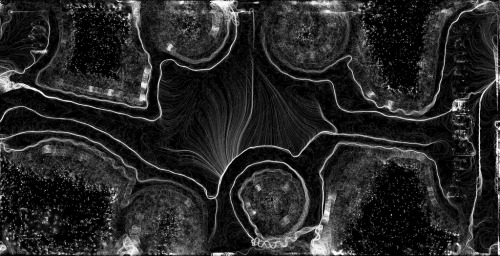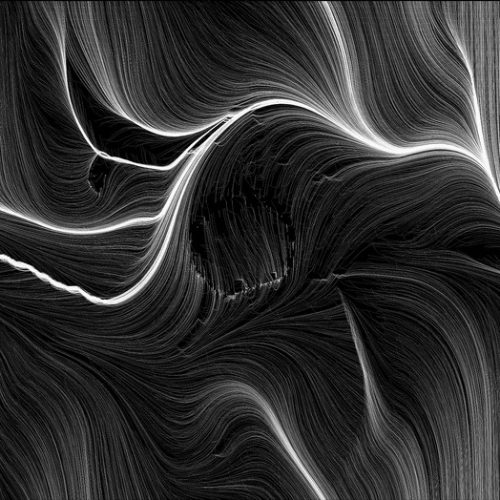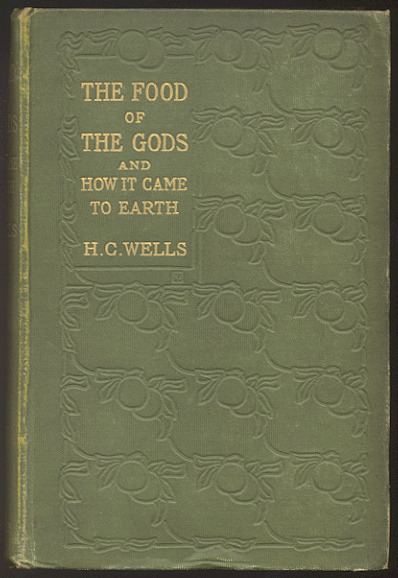
The Beatles – “I Feel Fine (Instrumental/Warmup)”
Studio Sessions 1964 (Bootleg)
This is takes 6 and 7 of the 9-take recording of “I Feel Fine”; take 6 is without vocals and is just pure jangly rhythm. Of course, in a way, it’s just “I Feel Fine” without the voice track. But it’s more than that, and it’s a hell of a lot of fun. Beatles ephemera tracks are always fun.
The Two Trees (Hercules Seghers, c.1620)
He made no pretentions to botany, and knew nothing of groups or classification; he did not care in the least to decide between Tournefort and the natural method; he took no part, either for the utricles or against the cotyledons, or for Jussieu against Linnaeus. He did not study plants, he loved flowers. He had much respect for the learned, but still more for the ignorant; and, while he fulfilled his duty in both these respects, he watered his beds every summer evening with a tin watering-pot painted green.
The Food of the Gods (H.G. Wells, 1904)
One of Wells’ lesser-read (not to say obscure) works, The Food of the Gods is an enjoyable but perplexing book. The premise is simple enough: a pair of scientists invent a substance that causes life to grow much larger than normal, the explanation being that growth is naturally punctuated because of the sporadic presence of this substance, which if supplied artificially causes continual expansion. A neat and adaptable concept, and he explores its implications in several directions, yet the theme and overarching idea of the book is elusive. Is it a parable? Is it a lark? Is it a warning? And if so, to whom?
The most off-putting aspect of the book is its varying tone. It’s like a Hollywood blockbuster that tries to be both tragic and comic. This doesn’t always work out. At least with The Food of the Gods the tone changes more or less continually from jaunty and light to serious and subversive. And in the end you get the feeling that the story had become something it was never meant to be – but which Wells probably found unavoidable given its trajectory.
For conduct which to clearer minds seems merely sane, was in those days to be performed only by rare vision and self-mastery.
Clams Casino – “What You Doin”
Instrumental
Walking the line between electronic ephemera and lushly produced hip-hop, this record is a great example of hybrid vigor. The deep beats are decidedly bass-heavy and urban, but the ghostly samples and full-spectrum atmospherics are more like Cut Copy crossed with Tim Hecker. The drums are a melange: the last track, “13,” combines a metronomic high hat from the 80s with a thunderous bass from the mid-2000s, with an old school clap that makes you think it’s going to drop into a house spiral at any moment. And then you’ve got this track, like a drugged, gauzy trip to a slow-motion dance floor. Where did this come from? (insound)
Vocabulary: Kimmering Clachan Edition
Scots words and phrases from The Private Memoirs and Confessions of a Justified Sinner
braird: the early shoots of a crop of grain like wheat or barley
luckpenny: a sort of discount given to a buyer for luck
windelstrae: a stalk of dry grass
bicker: wooden drinking vessel
wynd: a narrow alley (i.e. wind)
aumuse: a cap worn by clergy
ayont: beside or adjacent to
bourock: a hovel or shelter
shakel-bane: wrist bone
clachan: a small village
Auld Simmie: the devil
spleuchan: pouch
kimmer: gossip
shan: grimace
mense: honor
rowth: plenty
corbie: black
chafts: jaws
maun: must
bairn: child







